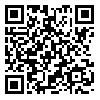BibTeX | RIS | EndNote | Medlars | ProCite | Reference Manager | RefWorks
Send citation to:
URL: http://ijme.tums.ac.ir/article-1-5650-en.html
2- Department of Medical Ethics and Philosophy of Health, Shiraz University of Medical Sciences, Shiraz, Iran
3- Department of Biotechnology, Shiraz University of Medical Sciences, Shiraz, Iran
Pharmacists serve as members of both the society and the health care team, which may involve them in activities that could be the subject of ethical query. They can face issues and problems in the workplace that may raise questions as to whether their acts are appropriate, right, just or legal.
This study aims to explore ethical issues from the perspective of pharmacists and to examine their reasoning processes regarding social phenomena such as ethical challenges. Moreover, it explores the ethical decision-making strategies that pharmacists employ when dealing with such problems in pharmacies and in their interactions with people.
This was a qualitative content analysis study. The participants were chosen using purposeful sampling from community pharmacists and the academic staff of the School of Pharmacy at Shiraz University of Medical Sciences. The data were obtained through semi-structured interviews with 20 individuals and analyzed using content analysis approach.
Analysis of the interviews led to extraction of the following six categories: pharmacists' understanding of key ethical concepts; pharmacists' experiences and duties; relationship with other health professionals; the pharmacy as a commercial setting; the difference between the practice of ethics in pharmacy, medicine and nursing from the perspective of pharmacists; and the actual response of pharmacists in confronting ethical problems. Each of the above-mentioned categories were further divided into sub-classifications describing specific ethical challenges in pharmacy practice
Awareness of ethical issues and professional guidelines is a fundamental part of the education of health care professionals and provides a structure that will enable them to assess ethical problems and make appropriate, justifiable decisions. The findings of this study indicate the need for implementation of professional guidelines and codes of ethics in pharmacy practice to cover all ethical issues
Received: 2015/12/24 | Accepted: 2016/02/22 | Published: 2016/02/22
| Rights and permissions | |
 |
This work is licensed under a Creative Commons Attribution-NonCommercial 4.0 International License. |





